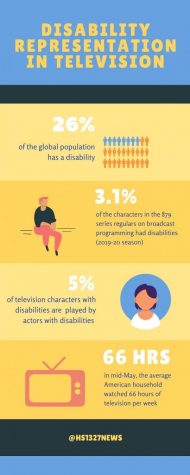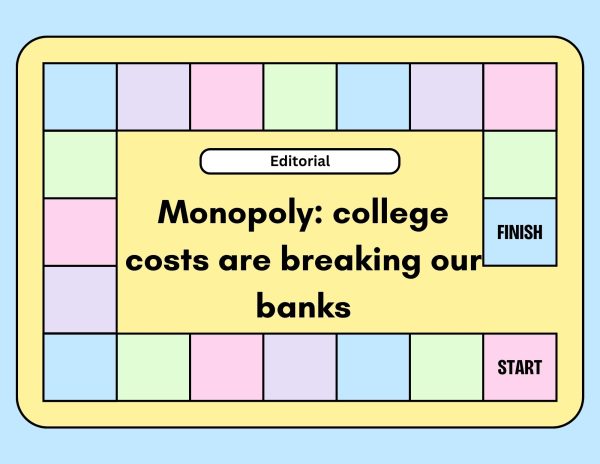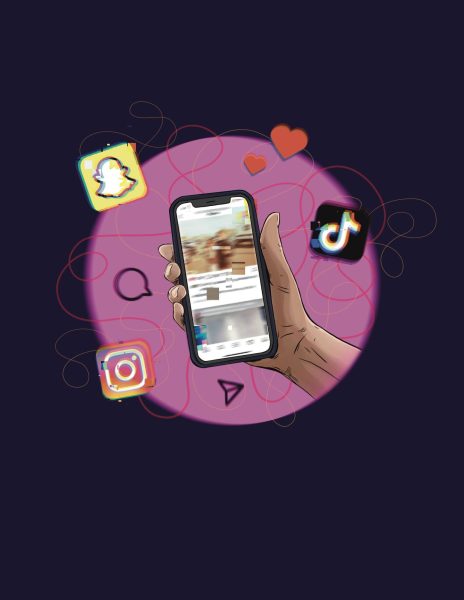People with disabilities deserve more representation in the entertainment industry
Think of your favorite television shows or movies. How many of them have a character who has a physical, intellectual, or developmental disability? More importantly, how many of these characters with disabilities are actually played by actors and actresses with disabilities?

According to a report conducted by the Gay and Lesbian Alliance Against Defamation in the 2019-20 season, 3.1 percent of the characters in 879 mainstream television series had disabilities. This percentage was higher than the previous year’s season, in which 2.1 percent of the characters had disabilities. Although there is clear progress towards disability representation in the media and television, there should be many more actors with disabilities playing disabled characters.
Television characters with disabilities are usually played by able-bodied, neurotypical actors and actresses. In fact, according to a 2016 report on disability in entertainment, 95 percent of all film characters with disabilities are played by able-bodied actors.
This means that only 5 percent are actually portrayed by people with disabilities. Imagine if only 5 percent of women in television were actually portrayed by women. Why should it be different for the representation of people with disabilities in the entertainment industry?
Disability representation in the entertainment industry is not just about talent and ability. There are plenty of talented actors with disabilities that could play the parts of disabled characters. Rather, it is a systemic issue that requires a significant change in peoples’ attitudes towards disability.
According to the Centers for Disease Control and Prevention, approximately 26 percent of adults in the United States have some type of disability. People with disabilities comprise a significant fraction of our population, yet they are so rarely integrated into mainstream entertainment.
Due to COVID-19 shelter-in-place orders, most Americans spend an especially great amount of time on screens. According to a report by Comcast, the average household watched 57 hours of television per week in early March 2020. By the middle of May, this number increased to 66 hours per week.
People with disabilities need broader representation considering the increased amount of television watched, as our exposure to television and media influences the way we perceive the world. The more often we see disability being inaccurately represented in virtual content, the more we may think that what we see on the screen is what disability is really like. When people with disabilities are represented accurately, our perception may change for the better and so may the lives of the disabled community.
Allowing more actors with disabilities the roles of characters with disabilities could help American people garner a greater sense of respect and understanding of the disabled community.
Additionally, actors with disabilities carry true struggles and experiences that they can bring to life by playing a character in a movie with a similar story – something that simply cannot be matched by an able-bodied actor, no matter how talented they are.
In the rare case of accurate representation of disability in Hollywood films, the character is often unimportant to the storyline or is portrayed in a pitiful or laughable manner. This could be extremely harmful to the mentality of viewers with disabilities, as well as those without. People with disabilities deserve to see themselves on the big screen, and not in a degrading or humorous way.
Representation of disability in American entertainment is increasing, but the real change will come when more actors with disabilities are chosen to play the roles of characters with disabilities. Actors with disabilities have unique experiences and talents that bring life to television and deserve to be showcased in the entertainment industry.

Samantha is a senior in her third year in journalism. She loves little old bookstores, the smell of almond extract, and rewatching Stranger Things. When...






